The War On The Poor
The gigantic sums of credit created out of nothing, causing a doubling and in some cases tripling of the money supplies of Western Governments, over the two-decade boom that we have just experienced, have consequences. Unless you were living at the bottom of the ocean, or on planet Zog for the last three years, the most obvious consequence is that this boom was unsustainable, as they all are. The bust has wreaked havoc across the developed world. The poorest members of society will be forced to pay for the errors of their political masters, and the richest members of society will benefit. During the boom, our nominal prices were pretty stable, i.e. general price inflation was viewed by mainstream economists and the press to be under control. The reality was quite different. Great productivity gains in all sectors of the economy during this period should have been delivering up much more purchasing power for a given amount of money, i.e. lower prices. We saw this in the Industrial Revolution, and the Technological Revolution we are living through should be no different. Entrepreneurs have been mixing up the factors of production in better combinations to deliver up more goods and services with those same factors of production. These productivity gains have been squandered by an inflating money supply. What some of us have known to be happening in the last two decades is now evident even to those with room temperature IQ. The productivity gains have slowed as the bust bites, and money inflation is now picking up a big head of steam. We are told by our political masters that “a dose of rapid inflation will clear out the system in the least painful way.” How many times have you heard that said? Even members of the Fed question this reasoning (albeit a minority). Take a look at this speechby Richard Fisher, the following section in particular:
As to the proposition that higher prices of financial assets will liberate those most in need, I wondered aloud if that were indeed true. We are already seeing the beginnings of speculative activity in stocks, bonds, buyouts and commodity markets. The rich and the quick are certainly able to exploit these circumstances to get richer. I have no problem with market operators making money; I did so myself in my previous life as a funds manager (before I took the vow of financial chastity and joined the Fed!). But I take no comfort, and see considerable risk, in conducting monetary policy that has the consequence of transferring income from the poor and the worker and the saver to the rich. Senior citizens and others who saved and played by the rules are earning nothing on their savings, while big debtors and too-big-to-fail oligopoly banks benefit from their subsidy. I know of no presidential administration or Congress, Republican or Democrat, that will tolerate, let alone advocate for, that dynamic for long, and I expressed my worry that this could come back to bite us and possibly threaten our independence.
I concur fully with these sentiments. Make no mistake here, policies of inflationism allow the governments of the world to unleash a vile pestilence on the poorest members of society, and the rich and nimble will profit from this. Like the man from the Fed, I blame no one for seeking to take opportunities to protect his or her savings and deploy them to take advantage of this situation, and I will do my best to make sure as little of my purchasing power is robbed from me as possible. We must remember that this policy destroys the purchasing power of people who need to live off their savings and who are on fixed or low incomes, largely pensioners and the poor. The War on the Poor was not unleashed by the current crop of governments around the world, but by their predecessors. I suspect there are no politicians who will point out that what they are actually doing is a soft default. We must remember that the levels of inflation we are experiencing, and will continue to experience, constitute a sovereign default in all but name. It is an acknowledgement that we will never pay back the debt owed in the public and the private sector at real purchasing power terms, but we will do it in nominal terms by letting inflation extract wealth from the population at large. A hard default would cause turmoil, no doubt, as it has in Iceland, but the War on the Poor would stop and a reallocation of resources from the profligate and imprudent to the more prudent and wiser users of capital would take place. Iceland is well down this road, and they will prosper quicker as a result. Our experiment with inflation could be two decades long, just as long as the boom! We may well rue the day we did not opt to let our banks go bust. Our politicians will tell us that there is no policy of inflation. They will say inflation results from the rise in foreign prices of commodities, the massive costs of imports, and trade unions pushing up wages. Inflation is always a monetary phenomenon, and the root of all control of the money supply goes right back to the government. They have a monopoly on the issue of currency, and power over the issue of credit via their control of the reserve ratio, and control of interest rates (the price of loanable funds). A simple example will show why the government’s role is essential. If a Russian or Arab puts up the price of oil, as there is more demand and or they have constrained supply, the Englishman buying will pay more to the Russian and the Arab. Thus a wealth transfer is achieved from the Englishman, who now has less to spend on other things. His reduced demand for other goods means that no overall price inflation can occur. Inflation can only happen with regard to commodity price rises if the person buying the commodity is determined to continue spending on other goods at his previous rate, and is able to get more credit from his bank (i.e. more money). Governments committed to inflationism are dishonest in what they do. I accept that a level of economic ignorance may well dominate the upper echelons of the governments of the world, and most politicians seem to be blissfully ignorant that what they are promoting is the mass extraction of wealth from the largest part of the voting population, to give to a minority. Even more baffling is that left wingers seem as happy with this as right wingers. Our job on this site is to try to make all aware that their policies will impoverish the weakest and most vulnerable, and weaken a recovery. If the War on the Poor is waged unwittingly, that will be small comfort to those affected.




![Isaac_Newton_one_pound_note[1]](https://tobybaxendale.com/wp-content/uploads/2011/02/Isaac_Newton_one_pound_note1-180x180.jpg)


